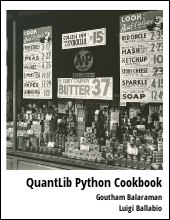Minimal Example of Calling Lua Functions from C++
August 05, 2014 by Goutham BalaramanThis article will present an introductory example of calling lua functions from C++.
If you want to extend and customize the capabilities of a C++ application without requiring a full recompilation, then using a embedded scripting language is the way to go. Lua is one such embeddable scripting language, and is very popular among game developers. The main advantage of Lua, in my opinion, is that the core API is very minimal, has very small memory footprint. The availability of LuaJIT makes it a very performant alternative as well.
This article is a continuation of the earlier introductory article Minimal C++ Example <|filename|minimal-lua.rst>. In this article we will discuss how to call lua functions from C++.
Example Code
extern "C" { #include "lua.h" #include "lualib.h" #include "lauxlib.h" } #include <string.h> int main(int argc, char* argv[]) { // initialization lua_State * L = lua_open(); luaL_openlibs(L); // execute script const char lua_script[] = "function sum(a, b) return a+b; end"; // a function that returns sum of two int load_stat = luaL_loadbuffer(L,lua_script,strlen(lua_script),lua_script); lua_pcall(L, 0, 0, 0); // load the function from global lua_getglobal(L,"sum"); if(lua_isfunction(L, -1) ) { // push function arguments into stack lua_pushnumber(L, 5.0); lua_pushnumber(L, 6.0); lua_pcall(L,2,1,0); double sumval = 0.0; if (!lua_isnil(L, -1)) { sumval = lua_tonumber(L,-1); lua_pop(L,1); } printf("sum=%lf\n",sumval); } // cleanup lua_close(L); return 0; }
Code Explained
The initial part of the code initialises the lua_State loads and executes the script with lua_pcall(L,0,0,0). Once the script is loaded, the functions are available in the global namespace. Here the script basically is a function that takes two numbers and returns the sum of the two. Using the lua_getglobal(L, "sum") call, we load the function into the stack. We can check if the function was loaded correctly using the lua_isfunction(L, -1). Then we pass the two arguments of the function by pushing them into the stack. Then the lua_pcall method executes the function and loads the result onto the stack. The successful execution of the function can be checked by checking that the stack is not nil using !lua_isnil(L,-1). The returned value can then be accessed by casting the result in the top of the stack using lua_tonumber(L,-1). We use lua_pop to clear the result from the stack.
Running this example should print:
sum=11.000000
on the screen.
Conclusion
This article gave a very minimal example explaining how to call a lua function from C++.
lua programming C++
Related Post
- Minimal Lua C++ Example
- Sending MSMQ Messages Using Python
- Running ZEO as a Windows Service
- Multi-Processing With Pandas
- Flask App Directory Structure

I am Goutham Balaraman, and I explore topics in quantitative finance, programming, and data science. You can follow me @gsbalaraman.

Updated posts from this blog and transcripts of Luigi's screencasts on YouTube is compiled into QuantLib Python Cookbook .